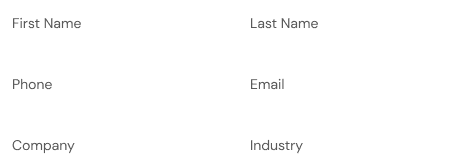
EOR vs. BPO : Your Ultimate Guide in Managing Remote Teams
With the rapid digital shift that is happening to the workforce, we can say that the future of a diversified and borderless remote workplace is already taking place. Not only did this shift encourage inclusion in teams, but has also been proven to be a cost-effective strategy to get the best talents while having a more diversified representation for connecting with your customers. This is why more and more businesses are investing in hiring and managing remote teams globally.
The most common way businesses successfully outsource is by partnering with outsourcing agencies such as Business Process Outsourcing (BPO) or Employer of Record (EOR) companies. Most businesses engage either of these two types of outsourcing agencies to hire remote employees efficiently.
But what is the difference between an EOR and a traditional BPO, and which one is best for your business? In this article, we’ll talk about the pros and cons of EOR and BPO to help you assess which type of outsourcing agency is ideal for the services you need.
What is a Business Process Outsourcing (BPO)?
Let’s discuss what a Business Process Outsourcing or BPO is first.
A BPO is an outsourcing solution where a company subcontracts its business functions to a third-party provider. Despite initially being for manufacturing companies, other industries also started contracting BPOs for back-office and front-office functions.

Back-office functions of a BPO support the core operations of a company, including the IT services, accounting, payment processes, human resources, and payment processing. Meanwhile, the front office functions include all the business functions that connect with customers like sales, marketing, and tech support.
Pros:
- Predictable cost. The pricing structure of your BPO provider’s services will be agreed upon in advance, and you will always know what to expect. This typically includes office and equipment costs.
- Process management. With BPOs, you are provided with a team or department based on your requirements, and management of internal processes within the department is managed for you.
- Saves you time. With a managed for you type of service, outsourcing through BPOs allows you and your business to free up more time for other important functions.
- Business flexibility. BPOs provide you with more flexibility to grow or downsize your team anytime you need to.
- No need for local incorporation. BPO companies can take care of the outsourcing process that you need to hire Filipino remote employees. However, note that instead of outsourcing individual employees, it is more about engaging a third-party service for a department function.
Cons:
- Lack of Control and Connection When outsourcing through BPOs, you outsource a team and internal processes within the team. This means that you will not have full control over how things are done, who your employees are, and the culture within your outsourced team. This may sometimes backfire when you want to retain a corporate culture unlike when you engage with Employer of Record companies.
- Comes in Teams or Departments. Engaging with BPOs typically means you are outsourcing entire departments on the onset for your business processes. This may come to a disadvantage if you are only looking to outsource specific and a hnadful of people.
- Lack of company and product knowledge. Outsourcing talents through BPO means that your team may experience a lack of knowledge and product expertise compared or absence of proper onboarding compared to hiring people through EOR services.
- Can’t guarantee quality services. If the job needs quality services from your outsourced employee, partnering with BPO may not be the right choice. Yes, they can provide you with bulk employees as soon as you need them but it can also compromise the skills and knowledge of your team with their job due to lack of training.
What is an Employer of Record (EOR)?
Now that we know about BPOs. Let's discuss what an Employer of Record or EOR can do for you.
An EOR is an outsourcing provider that handles the legal and administrative tasks that come with hiring employees remotely. Typically providing a simple and efficient option for businesses to legally employ foreign talents without having the need to set up a new business entity in the country they are outsourcing from to avoid violating any labor grounds.
Simply put, an EOR helps in carrying out legal and regulatory requirements of hiring, employment, payroll, and other human-resource-related tasks.
Pros
- More control over your team. Unlike BPOs, you have full control over who gets hired, fired, or promoted within your organization. You have complete control over your team’s day-to-day, projects, and schedule giving you a better vision of your team’s performance.
- Small to Medium Businesses. With an EOR, you can hire as little to as many employees as you require. There is usually no minimum number of employees you need to add after a certain time frame after engaging with an EOR company.
- Saves you time Similar to BPOs, engaging with an EOR can help free up your time leaving you with more bandwidth to take care of more important business functions, such as growing your business, rather than spending your time finding the right team and handling administrative work.
- No need for local incorporation. You don’t need to go through the long process of building local incorporation and entity to hire, employ, and manage your employees legally. An EOR will handle all the legalities that come with outsourcing employees and make sure you are completely compliant with the local labor laws of the country you are outsourcing from.
- Works with you More and more businesses prefer to be included in the hiring and employment process without having to be the ones to source employees. EORs will work hand in hand with you from hiring start to finish, and manage recurring payroll and HR administrative tasks for your remote team.
- Transparency on cost You dictate the salary of your employees and pricing is usually agreed upon in advance, so you will never be surprised with hidden costs or fees.
- Ensures quality services. EOR companies will be responsible for finding candidates and conducting initial interview but the final interview and selection process is yours to own. This means that you can still assess the skills and experience of the employees that you’ll employ for quality services. You will also be able to train your employees the way you want it done and align the quality of work and services they’ll provide with your needs.

Cons
- You manage your team. Unlike BPOs, an EOR will only handle payroll, legal processes, and HR administrative tasks for you. While this ensures you have complete control over your employees, it also means that day-to-day management will be handled internally within the organization.
- Can’t offer bulk employees in limited time. To ensure that all the outsourced employees are experts in their field, EOR companies tend to veer away from mass hiring and may take time assessing candidates to ensure they are a fit for each role required, with proper background check and legal compliance in consideration. With an EOR, the hiring process for finding the best candidate may take a few days to weeks depending on the urgency which can be laid out from the onset.
Which one will work for you?
Many businesses are unaware of the advantages and disadvantages when choosing between EOR and BPO for their outsourcing requirements. However, the key is to assess your business’s needs and goals and check which type of outsourcing provider suits you best.
If you want a “managed for you” business process and outsource an entire department, then a BPO is the best option for you. However, you have to be ready to pay a higher price due to office, equipment, and management costs. It will also work if you don’t want control over your people’s salary. Once you’re settled in with a BPO company and paid for their services, they will be the one to decide how much your employees would get.
On the other hand, if you simply want to outsource and have your team’s payroll and local HR administrative tasks taken care of, then EOR is for you. It is a perfect choice if you still want to retain full control over your remote team and maintain the company’s culture within each department.
Ultimately, one of the reasons why most companies are switching from partnering with BPOs to EORs is the freedom to manage their own outsourced employees. More and more businesses prefer to be included in the hiring and employment process without having to be the ones to source employees.
Considering that almost 63.3% of businesses claim that retaining employees is difficult, showing your company’s concern for employees whether face to face or remote can help in retaining outstanding and loyal workers. EORs like Remotify can even help you provide HMO and other benefits for your employees.
Both EORs and BPOs have their own sets of advantages and disadvantages, and choosing between them should be based on your business needs.
Outsourcing simplified
If you want to outsource and diversify your workforce and still have full control over your remote team minus the payroll headache, HR administrative tasks, and legal processing, then you need to partner with a reliable EOR company in your target country.
Remotify also offers additional services such as GDPR and cybersecurity training, employee background check, and may help you provide HMO and laptops for your outsourced employees.
To learn more on how you can outsource Filipino talents through an Employer of Record, you can check out Our Services for more information.
About Remotify
Remotify is your next-generation solution to growing your team remotely and cost-effectively in the Philippines.
Through our Employer of Record service, Remotify will employ and payroll your workers in the Philippines and do the heavy lifting for you. We will take care of local HR, compliance, attendance tracking, payroll, and reporting so you can focus on what is most important: growing your business.
This means you can quickly and securely hire employees in the Philippines, attracting top talents and keeping them engaged through the process. At the same time, you avoid the overhead of establishing your own entity.
From complex local tax and labor laws to in-country capital requirements and compliant HR management, payroll, and benefits disbursement, getting started in a new country to tap on its low cost and great talents can be a time-consuming endeavour. But with the right partner, it doesn’t have to be. Remotify is here to keep things simple for you.
Jump straight to a key chapter
Spending Too
Much Time
Onboarding?
your remote hiring in the
Philippines, excellently.
Say Goodbye to High Costs!
Request Your Free Consultation Today andSave a Massive 70% on Your Workforce!

Ready to thrive in a remote-first work environment?


